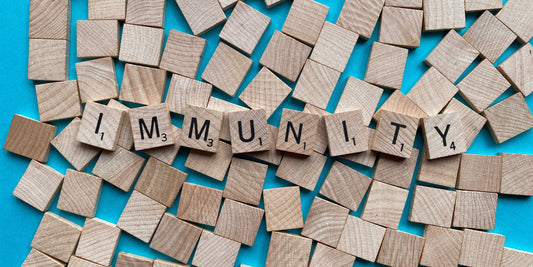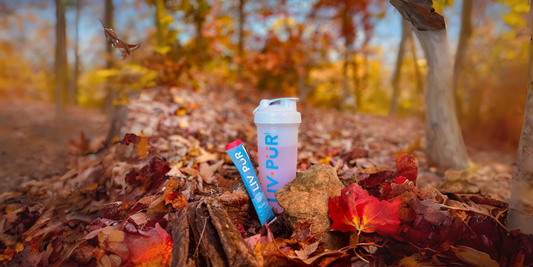In their 20s and 30s, most people aren’t thinking about blood pressure, yet almost half of twenty-somethings have elevated or high blood pressure.
How?
You don’t have to have a family history, consume a diet high in sodium, or be overweight and sedentary to suffer from blood pressure problems.
One possible culprit of hidden blood pressure issues: dehydration.
Skipping water on a busy day doesn’t feel like a big deal in the short-term… yet chronic dehydration has serious effects on overall well-being, including blood pressure.
What is blood pressure?
Blood pressure is simply the force circulating blood puts on the walls of your veins and arteries. For the most part, blood pressure is created by the contraction of the heart muscle. Some pressure on the arterial walls is healthy and normal. It’s when your blood pressure gets too high — and sometimes even too low — that the pressure is unhealthy.
Here are the four main blood pressure categories:
- Normal: Lower than 120/80 mmHg
- Elevated: Between 120–129/80 mmHg
- High blood pressure (hypertension), stage 1: Between 130–139/80–90 mmHg
- High blood pressure (hypertension), stage 2: 140/90 mmHg or higher
Dehydration and blood pressure: the connection
Your blood is made up of red blood cells, white blood cells, platelets, and plasma.
The liquid portion of your blood, called plasma, is a mixture of salts, water, and protein. Plasma is about 90% water and accounts for more than half of your total blood volume.
Because water is such a large portion of your blood, when you’re not properly hydrated, the volume of your blood decreases. A decrease in blood also means a decrease in the pressure against your arteries and veins (i.e. blood pressure).
That’s why short-term dehydration is most often associated with low blood pressure.
Chronic dehydration actually has the opposite effect in most cases: high blood pressure. Without proper water in your body’s cells, the brain sends a message to secrete vasopressin, a chemical that causes constriction of your blood vessels. The constriction of the blood vessels creates more pressure against the walls (or high blood pressure).
Why staying hydrated and protecting your blood pressure matters
High blood pressure if often referred to as “the silent killer” — and for good reason. While you may not notice immediate effects of high blood pressure, long-term, unmanaged elevated blood pressure puts you at a greater risk of developing serious medical conditions later in life, according to research.
Other symptoms of dehydration
A drop in blood pressure isn’t the only way dehydration can negatively affect your body. Other signs to look out for include...
- Feeling thirsty
- Headache
- Muscle weakness
- Dry mouth
- Decrease in urination
- Dark-colored urine
- Fatigue
- Lightheadedness, dizziness, and confusion
How to combat dehydration
Luckily, managing hydration is simple for most people. With just a few lifestyle changes, you can increase your hydration and help keep dehydration at bay:
Water
For the most part, staying hydrated and warding off dehydration is simple. It starts with drinking water — and enough of it.
How much water should you drink a day? The general recommendation for water intake is half an ounce to an ounce of water for every pound you weigh. That means if you weigh 160 pounds, you should drink 80–160 ounces of water each day.
However, this recommendation is just a good rule of thumb — as water needs vary from person to person based on their unique makeup and level of activity throughout the day.
Electrolytes
When you’re dehydrated or overhydrated, your electrolyte levels become unbalanced. That’s why when considering your hydration levels, I believe it’s important to also consider electrolyte balance.
Electrolytes are minerals in your body that contain an electrical charge. Among other things, they help balance the amount of water in your body. Sodium, calcium, potassium, chloride, phosphate, and magnesium are all examples of electrolytes.
By taking an electrolyte supplement with the ideal ratio of electrolytes you can help keep these electrically charged minerals at an optimal level in the body.
LivPur Hydration packets were specifically formulated to nourish your body with balanced electrolytes. In a single packet, get 50 mg calcium, 35 mg magnesium, 150 mg sodium, and 50 mg potassium.
Pour the packet into a bottle of water to get the fluids and electrolytes your body craves in a single swallow.
Additional Hydration Tips
Drinking water isn’t the only way to get water into the body. You can also:
- Eat fresh fruits and vegetables
- Drink soups
- Sip on smoothies
- Try herbal teas
- And more
If you’re having trouble remembering to drink water throughout the day, even try using a water reminder app.
Conclusion
Both short-term and long-term dehydration negatively affect blood pressure, which can wreak havoc on the body if it goes unchecked.
Staying hydrated by drinking plenty of fluids and maintaining optimal electrolyte levels are two of the best ways to armor yourself from dehydration.
If you experience headaches, muscle weakness, dry mouth, decreased urination, and/or fatigue, you may be dehydrated.
The LivPur team specifically formulated Hydration to fuel your body through essential aminos acids and a healthful balance of electrolytes — all in a convenient, on-the-go powder packet you can easily mix into your water bottle. Shop hydration.




